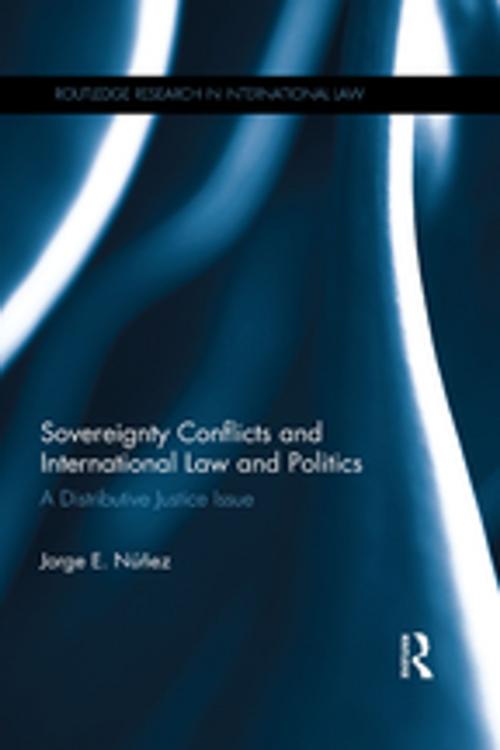Sovereignty Conflicts and International Law and Politics
A Distributive Justice Issue
Nonfiction, Reference & Language, Law, International, Social & Cultural Studies, Political Science, International Security| Author: | Jorge E. Núñez | ISBN: | 9781351794787 |
| Publisher: | Taylor and Francis | Publication: | May 12, 2017 |
| Imprint: | Routledge | Language: | English |
| Author: | Jorge E. Núñez |
| ISBN: | 9781351794787 |
| Publisher: | Taylor and Francis |
| Publication: | May 12, 2017 |
| Imprint: | Routledge |
| Language: | English |
Many conflicts throughout the world can be characterized as sovereignty conflicts in which two states claim exclusive sovereign rights for different reasons over the same piece of land. It is increasingly clear that the available remedies have been less than successful in many of these cases, and that a peaceful and definitive solution is needed. This book proposes a fair and just way of dealing with certain sovereignty conflicts. Drawing on the work of John Rawls in A Theory of Justice, this book considers how distributive justice theories can be in tune with the concept of sovereignty and explores the possibility of a solution for sovereignty conflicts based on Rawlsian methodology. Jorge E. Núñez explores a solution of egalitarian shared sovereignty, evaluating what sorts of institutions and arrangements could, and would, best realize shared sovereignty, and how it might be applied to territory, population, government, and law.
Many conflicts throughout the world can be characterized as sovereignty conflicts in which two states claim exclusive sovereign rights for different reasons over the same piece of land. It is increasingly clear that the available remedies have been less than successful in many of these cases, and that a peaceful and definitive solution is needed. This book proposes a fair and just way of dealing with certain sovereignty conflicts. Drawing on the work of John Rawls in A Theory of Justice, this book considers how distributive justice theories can be in tune with the concept of sovereignty and explores the possibility of a solution for sovereignty conflicts based on Rawlsian methodology. Jorge E. Núñez explores a solution of egalitarian shared sovereignty, evaluating what sorts of institutions and arrangements could, and would, best realize shared sovereignty, and how it might be applied to territory, population, government, and law.















